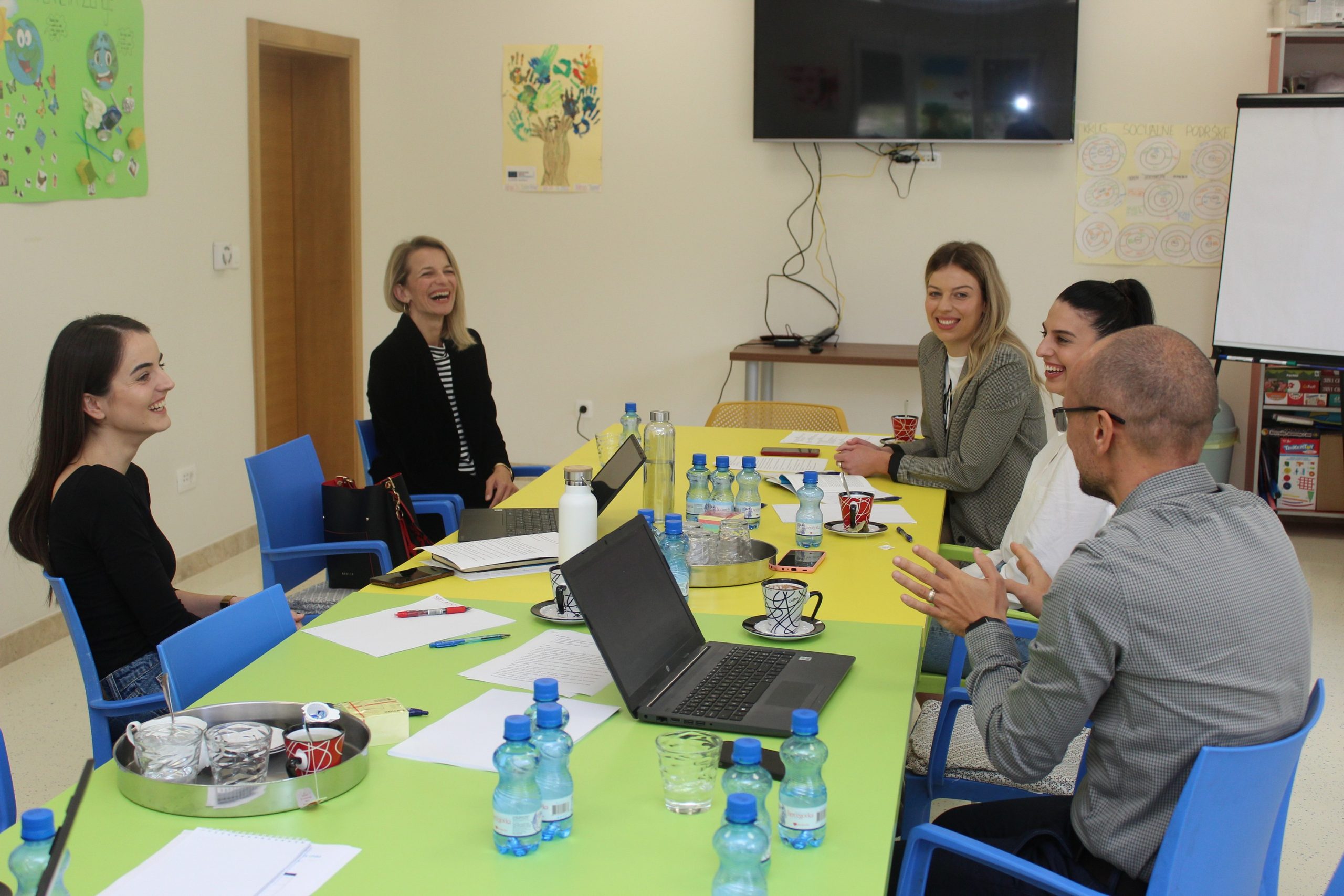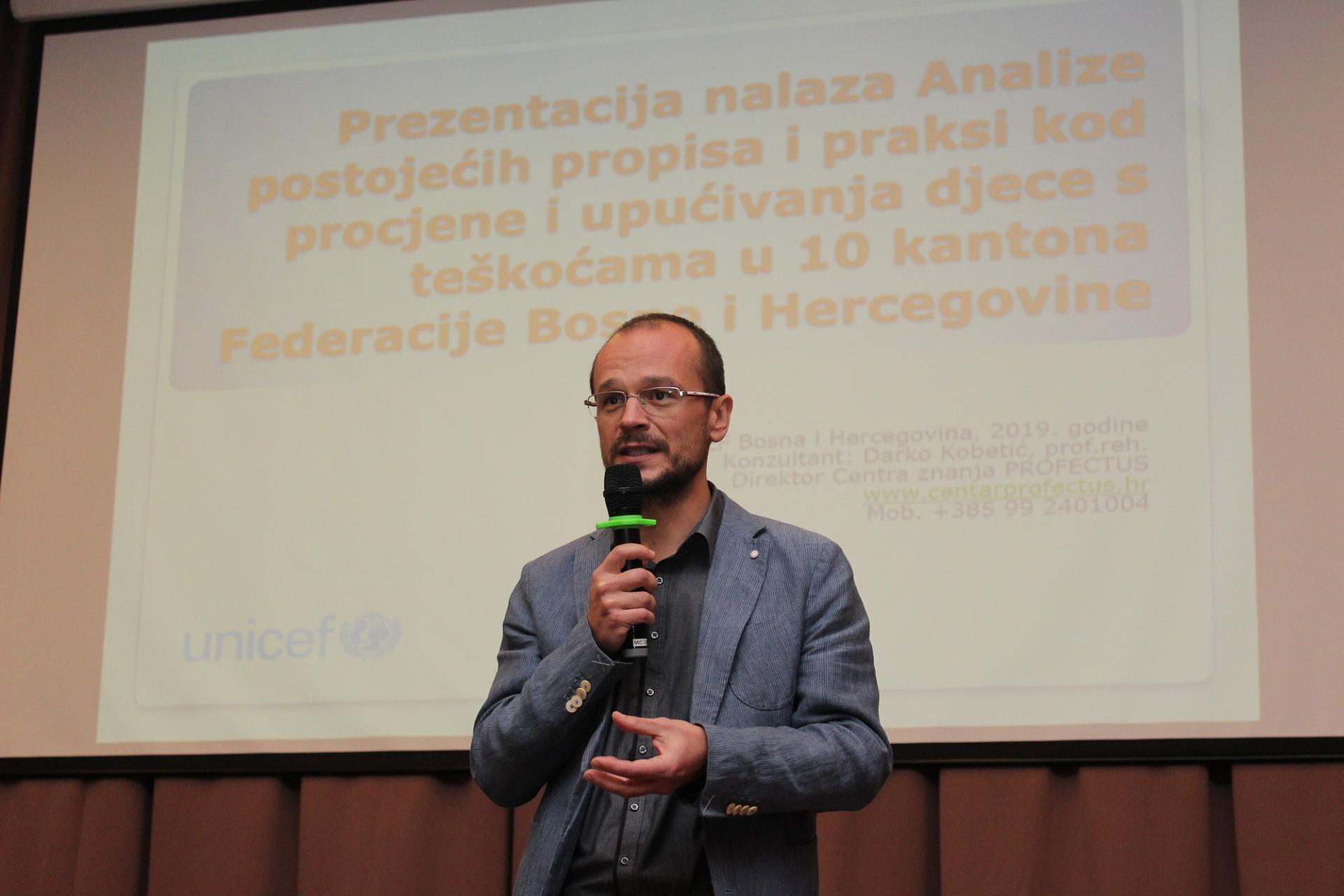
In 2018, UNICEF released a report titled “Everybody Counts,” which revealed significant challenges faced by children with disabilities in the Western Balkans. The report, funded by the EU, emphasised that despite the efforts of governments in the region, children with disabilities encountered various obstacles, such as limited access to early identification and intervention programmes, entrenched social discrimination and stigma, high financial costs for families, lack of protection from violence and abuse, and more. The report’s most striking finding was that society systematically excluded children with disabilities from birth. The report called on governments to take action, which they did to a limited extent.
On the other hand, with EU support, UNICEF launched projects to address this issue. One such project, implemented in Bosnia and Herzegovina, specifically the Herzegovina-Neretva Canton, focused on the evaluation and referral of children with disabilities. The project’s goal was to improve the system, which previously relied on professionals making independent decisions about the child’s needs and development trajectory. The new approach, introduced by the project, places families and the child at the forefront.
“Our goal is a humane approach, and I’m pleased that we have parents who have chosen this method. We concentrate on the child, family, professionals, and community. I hope that our efforts will be beneficial.”
Darko Kobetić, UNICEF consultant in Bosnia and Herzegovina
Darko Kobetić, a rehabilitation professor, UNICEF consultant in Bosnia and Herzegovina, and author of “Analysis of Policies and Practices in the Area of Assessment and Referral of Children with Disabilities at the FBiH Level,” has been involved in the development of a new assessment system since its inception. He states, “Our goal is a humane approach, and I’m pleased that we have parents who have chosen this method. We concentrate on the child, family, professionals, and community. I hope that our efforts will be beneficial.”
The new assessment system is entirely focused on the child and the family, with all relevant data gathered about each child from all stakeholders involved in their growth and development, including parents, speech therapists, educational rehabilitators, and physical therapists. Furthermore, unlike before, members of multi-sectoral professional bodies coordinate the implementation and work on creating tailored support plans for each participating child. The emphasis is on empowering the child and family, determining the child’s abilities, needs, and interests. Initial feedback from parents has been positive.
Martina, a mother of four-year-old Noa, shares her positive experience with the new assessment system: “The previous way of assessment was stressful because my child may not have been in the mood that day and could not show anything. I had to bring him in for the assessment two or three times, and it was very upsetting. You can’t determine anything in 10 minutes. What is important for me is to see Noa making progress, and we should get the best out of him. He has made progress, and it should be acknowledged. I believe that he can achieve a lot, and we should work with him.”

“In Bosnia and Herzegovina, there was a strong focus on diagnosis, and the assessment’s primary objective was to identify the child’s problem type, which was the end of the assessment process. Shifting the focus to the child’s interests and needs, which is also a shift from a medical to a human rights paradigm, is the most successful element of this project.”
Darko Kobetić, UNICEF consultant in Bosnia and Herzegovina
According to Darko, the primary goal of the new system is to identify problems early and provide better support plans for families and children to prevent institutionalisation. They create an annual plan for the child and family and update it as their circumstances change. “We also prepare families and children for the transitional period when they have to enrol in kindergarten or primary school, and we also prepare schools for the enrolment of children with disabilities, so that when the child enrols, the schools have a better approach,” explains Darko.
Darko believes that the project’s main impact was changing the perspective and focusing on the child and family’s needs. “In Bosnia and Herzegovina, there was a strong focus on diagnosis, and the assessment’s primary objective was to identify the child’s problem type, which was the end of the assessment process. Shifting the focus to the child’s interests and needs, which is also a shift from a medical to a human rights paradigm, is the most successful element of this project,” says Darko.
About the project
Implementation of assessment and referral of children with disabilities is part of the “Mitigation of the impact of COVID-19 on the lives of children and parents in the Western Balkans and Turkey” programme implemented by Unicef and funded by the EU through the European Commission’s Directorate-General for Neighbourhood Policy and Enlargement Negotiations (DG NEAR). Through this €5 million programme, 490,000 children and parents across the programme area are expected to have better access to public services that promote early childhood development, education, health, and protection as part of recovery from COVID-19.
Photo credits:UNICEF/BHG/Panjeta
On the other hand, with EU support, UNICEF launched projects to address this issue. One such project, implemented in Bosnia and Herzegovina, specifically the Herzegovina-Neretva Canton, focused on the evaluation and referral of children with disabilities. The project’s goal was to improve the system, which previously relied on professionals making independent decisions about the child’s needs and development trajectory. The new approach, introduced by the project, places families and the child at the forefront.
Darko Kobetić, a rehabilitation professor, UNICEF consultant in Bosnia and Herzegovina, and author of “Analysis of Policies and Practices in the Area of Assessment and Referral of Children with Disabilities at the FBiH Level,” has been involved in the development of a new assessment system since its inception. He states, “Our goal is a humane approach, and I’m pleased that we have parents who have chosen this method. We concentrate on the child, family, professionals, and community. I hope that our efforts will be beneficial.”
The new assessment system is entirely focused on the child and the family, with all relevant data gathered about each child from all stakeholders involved in their growth and development, including parents, speech therapists, educational rehabilitators, and physical therapists. Furthermore, unlike before, members of multi-sectoral professional bodies coordinate the implementation and work on creating tailored support plans for each participating child. The emphasis is on empowering the child and family, determining the child’s abilities, needs, and interests. Initial feedback from parents has been positive.
Martina, a mother of four-year-old Noa, shares her positive experience with the new assessment system: “The previous way of assessment was stressful because my child may not have been in the mood that day and could not show anything. I had to bring him in for the assessment two or three times, and it was very upsetting. You can’t determine anything in 10 minutes. What is important for me is to see Noa making progress, and we should get the best out of him. He has made progress, and it should be acknowledged. I believe that he can achieve a lot, and we should work with him.”

According to Darko, the primary goal of the new system is to identify problems early and provide better support plans for families and children to prevent institutionalisation. They create an annual plan for the child and family and update it as their circumstances change. “We also prepare families and children for the transitional period when they have to enrol in kindergarten or primary school, and we also prepare schools for the enrolment of children with disabilities, so that when the child enrols, the schools have a better approach,” explains Darko.
Darko believes that the project’s main impact was changing the perspective and focusing on the child and family’s needs. “In Bosnia and Herzegovina, there was a strong focus on diagnosis, and the assessment’s primary objective was to identify the child’s problem type, which was the end of the assessment process. Shifting the focus to the child’s interests and needs, which is also a shift from a medical to a human rights paradigm, is the most successful element of this project,” says Darko.
About the project
Implementation of assessment and referral of children with disabilities is part of the “Mitigation of the impact of COVID-19 on the lives of children and parents in the Western Balkans and Turkey” programme implemented by Unicef and funded by the EU through the European Commission’s Directorate-General for Neighbourhood Policy and Enlargement Negotiations (DG NEAR). Through this €5 million programme, 490,000 children and parents across the programme area are expected to have better access to public services that promote early childhood development, education, health, and protection as part of recovery from COVID-19.
Photo credits:UNICEF/BHG/Panjeta
Please wait while your video is being uploaded...
Don't close this window!